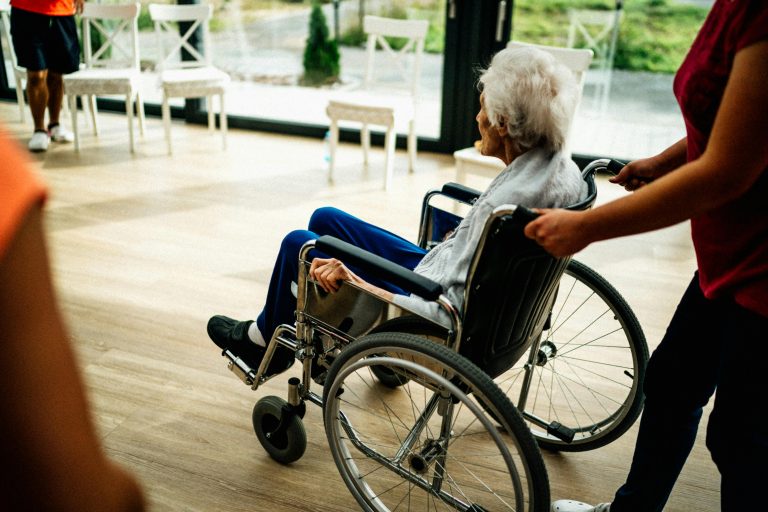Healing from the Past: The Power of Religious Trauma Therapy

Experiencing trauma, especially related to religion, can leave long-lasting emotional and psychological scars. For many individuals, the harm caused by religious institutions or practices can lead to confusion, guilt, anxiety, and even a crisis of faith. Fortunately, religious trauma therapy offers a path to healing, helping individuals navigate these complex emotions and rebuild their sense of self. In this article, we will explore what religious trauma is, how it affects individuals, and how therapy can help them regain control over their lives.
What Is Religious Trauma?
Religious trauma refers to the emotional, psychological, and sometimes physical harm that individuals experience within religious institutions or communities. It can occur in a variety of religious settings, including those with abusive teachings, strict doctrines, or coercive control. While religion can be a source of comfort and support for many, some individuals may suffer from harmful practices or experiences that leave deep scars.
For some, religious trauma arises from experiences such as:
- Abusive leadership or authority figures who manipulate or control followers through fear or guilt.
- Rigid dogma and rules that leave no room for personal autonomy or growth.
- Shaming practices that cause feelings of unworthiness or inadequacy.
- Sexual abuse or other forms of physical harm within religious settings.
- Excommunication or shunning, which can lead to isolation and abandonment.
Regardless of the specific cause, religious trauma often results in significant emotional distress that requires professional help to heal.
The Effects of Religious Trauma
The effects of religious trauma therapy can vary depending on the individual and the specific experiences they have had. However, some common effects include:
1. Emotional and Psychological Pain
Many survivors of religious trauma experience intense emotional pain, including feelings of shame, guilt, and anger. These emotions are often a result of harsh teachings, punishment for perceived wrongdoings, or the internalization of religious guilt. Survivors may feel as though they are unworthy of love, happiness, or forgiveness, which can lead to depression, anxiety, or self-harm.
2. Crisis of Faith
One of the most profound effects of religious trauma is a crisis of faith. After experiencing harm within a religious community or institution, many survivors begin to question their beliefs. Some may find it difficult to trust religious authorities or question the validity of their faith altogether. This crisis can lead to confusion about spiritual matters and an existential sense of loss.
3. Difficulty Trusting Others
Religious trauma often involves betrayal by those who were supposed to provide care, guidance, and support. As a result, survivors may struggle with trusting others, especially those in positions of authority. This lack of trust can extend beyond religious figures, affecting personal relationships, including family, friends, and coworkers.
4. Social Isolation
Survivors of religious trauma may experience social isolation due to being ostracized or shunned by their religious community. This isolation can lead to feelings of loneliness and alienation. Those who leave their faith may also struggle to find a new support network, especially if they have lost friends or family members along the way.
5. Identity Struggles
For many individuals, religion forms a central part of their identity. When that identity is shaken by trauma, it can cause confusion about who they are and where they belong. Survivors may feel lost, unsure of their purpose, and disconnected from their true selves. This crisis of identity can affect not only their spiritual life but their personal and professional lives as well.
How Religious Trauma Therapy Helps
Religious trauma therapy is specifically designed to help individuals heal from the wounds caused by harmful religious experiences. This type of therapy focuses on acknowledging the trauma, processing the emotions associated with it, and rebuilding a healthy sense of self. Below are some key ways therapy can help individuals who have experienced religious trauma:
1. Providing Validation and Safety
One of the first steps in religious trauma therapy is providing a safe and validating environment for the survivor. Many individuals who have experienced religious trauma feel as though their experiences are dismissed or minimized by others, especially within religious communities that continue to uphold harmful practices. Therapy helps survivors feel heard, validated, and supported as they process their pain and confusion.
2. Rebuilding Trust
Trust is often deeply damaged in the aftermath of religious trauma. Survivors may have been taught to obey authority without question, only to later experience betrayal or manipulation. Religious trauma therapy helps individuals rebuild trust in themselves and others. It allows them to regain confidence in their judgment and learn to trust in their own autonomy.
Therapists work with individuals to help them understand the nature of trust, recognizing that trust is built on healthy boundaries and mutual respect. Through therapy, survivors can heal from broken trust and begin to form healthier, more meaningful relationships.
3. Addressing Shame and Guilt
Shame and guilt are common emotions associated with religious trauma. Survivors often internalize negative teachings about themselves, leading to a distorted self-image. Religious trauma therapy helps individuals confront and process these emotions, challenging the harmful beliefs that were instilled in them.
Therapists work with survivors to separate their true self from the guilt and shame they may have been taught to feel. Through this process, individuals can learn to embrace self-compassion, acceptance, and forgiveness, ultimately improving their mental health and well-being.
4. Exploring Spirituality on Their Own Terms
One of the most empowering aspects of religious trauma therapy is the ability to explore spirituality without the constraints of harmful religious dogma. Many survivors find themselves questioning their faith or searching for a new sense of meaning after experiencing religious trauma. Therapy allows them to explore these existential questions in a non-judgmental environment.
Survivors can take the time they need to explore their beliefs, whether that means reconnecting with their faith in a healthier way or embracing a new spiritual path. A therapist trained in religious trauma understands the importance of this exploration and helps guide individuals through their spiritual journey.
5. Creating Healthy Boundaries
Religious trauma often involves manipulation, coercion, or control, which can make it difficult for survivors to set healthy boundaries. Therapy helps individuals develop a sense of autonomy and self-respect, empowering them to set boundaries in their personal and spiritual lives.
Therapists work with survivors to identify toxic relationships, learn to say no without guilt, and assert their needs in a healthy and respectful way. Setting boundaries is a crucial step in healing from religious trauma, as it allows survivors to protect their emotional well-being and regain a sense of control over their lives.
6. Healing from Emotional Wounds
Religious trauma therapy helps survivors process the emotional wounds caused by harmful religious experiences. These emotional wounds can be deep and long-lasting, affecting a person’s self-esteem and worldview. Through various therapeutic techniques, such as Cognitive Behavioral Therapy (CBT), trauma-informed therapy, and mindfulness practices, therapists help individuals address their emotional pain and develop healthy coping strategies.
Therapists help survivors work through their emotions, process grief, and learn new ways of managing stress and anxiety. By addressing the emotional impact of trauma, individuals can regain emotional resilience and work toward long-term healing.
Finding the Right Religious Trauma Therapist
Finding the right therapist is essential to healing from religious trauma. It is important to choose a therapist who is experienced in religious trauma therapy and can offer the support and understanding that you need. Here are some tips for finding the right therapist:
1. Look for Specialization
Seek a therapist who specializes in religious trauma therapy. A therapist with experience in this area will have a deep understanding of the unique challenges and emotional complexities involved in healing from religious abuse. They will also be equipped with the tools and techniques needed to address religious trauma effectively.
2. Check for Trauma-Informed Care
It is important to work with a therapist who is trained in trauma-informed care. Trauma-informed therapists understand the impact of trauma on mental health and are committed to providing a safe, supportive, and non-judgmental space for survivors.
3. Trust Your Instincts
Healing from religious trauma can be a deeply personal and vulnerable process. It is crucial to find a therapist who makes you feel safe, respected, and understood. If you do not feel comfortable with a therapist, it is okay to seek someone else who better meets your needs.
Conclusion
Religious trauma therapy is a vital resource for individuals who have experienced harm within religious settings. Whether you are struggling with emotional pain, a crisis of faith, or difficulty trusting others, therapy can help you heal and regain control over your life. By working with a skilled therapist, you can begin the journey of recovery, reclaim your sense of self, and explore spirituality in a way that aligns with your true beliefs.
If you are struggling with religious trauma, don’t hesitate to reach out for support. At David A. Matheson, we are dedicated to helping individuals heal from religious trauma and live fulfilling, empowered lives. Let us walk with you on your path to healing and growth.






